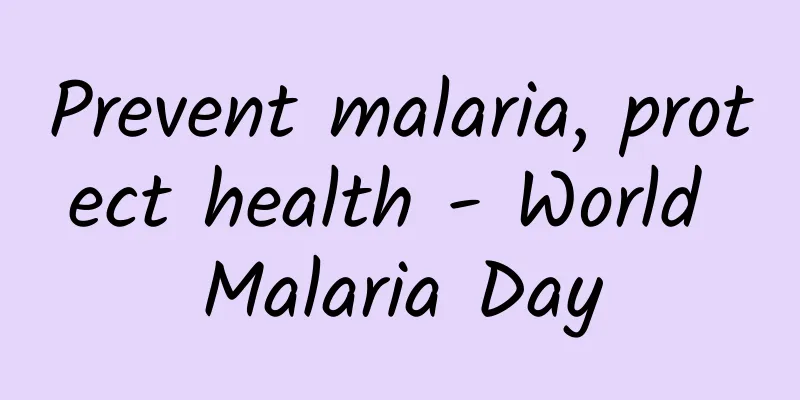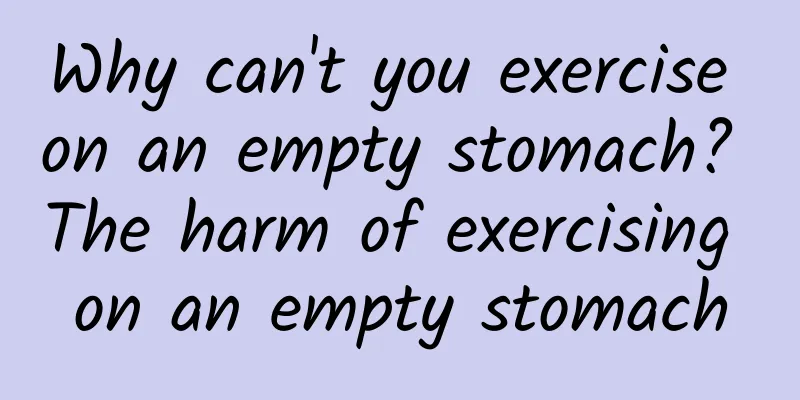Prevent malaria, protect health - World Malaria Day

|
In 2022, China obtained the malaria-free certification from the World Health Organization, becoming one of the few 40 or so malaria-free countries and regions in the world. Perhaps many people are not aware of the greatness of this achievement, but if we look at the world, or go back 70 years, malaria is a familiar demon around us. So what exactly is malaria? What is malaria? Malaria is a vector-borne infectious disease caused by Plasmodium through the bite of Anopheles mosquitoes or transfusion of blood from people carrying Plasmodium. This disease is very old and is almost universal. Although ancient Chinese and foreigners have summarized many plans for treating and preventing malaria, the malaria epidemic has not been controlled due to the limitations of the times. In today's world, malaria is still one of the most common diseases. In 2019, there were 229 million cases of malaria, nearly 30% more than the current cumulative number of COVID-19 cases, and caused 409,000 deaths. Children are most susceptible to malaria, with one child dying from malaria every 2 minutes. What does a malaria attack feel like? Typical patients first feel chills and shivering, with a cyanotic face, followed by a rapid rise in body temperature, headache, flushed face, nausea and vomiting, and confusion. After 4-8 hours, the body temperature drops and the whole body sweats. Some patients develop herpes in the mouth and nose. If not treated for a long time, complications such as scleral jaundice, anemia, and hepatosplenomegaly may occur. The body temperature of atypical patients can reach 42°C and they are in coma. The patients with malignant attacks have severe headaches, nausea and vomiting, irritability, mental confusion, abdominal pain and diarrhea, convulsions, coma, hemiplegia and aphasia. The cold type patients have sweating, decreased body temperature and blood pressure, and the recovery is poor if they are not treated in time. Because when infected, the body feels as hot as a furnace and as cold as an ice cellar, malaria is also called "malaria". my country's journey in fighting malaria my country's fight against malaria mainly starts from three aspects. The first step is to launch a patriotic health campaign across the whole society to lay a solid foundation for anti-malaria. Through concerted action by the whole society, the country's sanitary environment level can be gradually improved, and the living space of mosquitoes can be reduced. With fewer mosquitoes, the spread of malaria will also be reduced. The second is to increase investment in preventive and therapeutic drugs for malaria to ensure continued control and prevent the disease from declining. In 1967, the Chinese government launched the "523 Project", a nationwide research program to pool the wisdom and efforts of all to find new treatments for malaria. Eventually, in the 1970s, the miraculous antimalarial drug artemisinin was discovered. After its widespread use, it has relieved the suffering of a large number of patients and reduced the number of Plasmodium parasites, the root cause of malaria. Finally, a systematic multi-departmental joint mechanism focused on anti-malaria and completed the final step. China has strengthened targeted training, staffing, laboratory equipment, drugs and mosquito control measures to ensure rapid detection, treatment and prevention of malaria cases. At the same time, the "1-3-7" strategy is implemented: malaria cases are reported online within 1 day after the case is discovered, case review and epidemiological case investigation are carried out within 3 days, and epidemic site investigation and disposal are carried out within 7 days. Areas in the country with different levels of malaria prevalence are also divided into four categories, with different response measures and assessment systems to implement precise prevention and control. With these three measures, the incidence of malaria in China has dropped to a very low level again, moving from the control stage to the elimination stage. This step has also been described by the World Health Organization as a "remarkable feat." " The Mother of Artemisinin " - Tu Youyou During the "523 Project", Chinese pharmacist Tu Youyou won the 2015 Nobel Prize in Physiology or Medicine for her significant discovery of artemisinin. Tu Youyou was born in December 1930 in Ningbo, Zhejiang Province. She graduated from Beijing Medical College in 1955. She is a lifelong researcher at the China Academy of Chinese Medical Sciences, a pharmacist, and China's first Nobel Prize winner in medicine. She has been engaged in research on traditional Chinese medicine and the combination of traditional Chinese and Western medicine for many years, and her outstanding contribution is the creation of a new antimalarial drug - artemisinin. In 2011, the Lasker Award, an international medical award, awarded Tu Youyou its Clinical Research Award in recognition of her "discovery of artemisinin, which has saved millions of lives around the world, especially in developing countries." As the "American Nobel Prize" which has always been dominated by Americans, Tu Youyou is the only Chinese scientist to receive this honor. |
<<: Gastrointestinal bleeding: what you should know
>>: Gestational diabetes: How to resolve the sweet burden?
Recommend
What are the disadvantages of drinking for women?
Some people also say that "women are born wi...
Why is my belly still so big after giving birth?
During pregnancy, pregnant women eat more high-nu...
What are common gynecological diseases?
In modern society, women’s work is no longer just...
Can wearing a mask prevent Wuhan pneumonia? What is the transmission route of the new coronavirus in Wuhan?
Everyone should know the latest news about suspec...
What is the reason for lower abdominal pain and back pain in women
Is long-term low back pain caused by pelvic infla...
At what age do women reach menopause?
Menstruation is a woman’s “best friend”, but when...
Treatment of hyperprolactinemia
Many people suffer from hyperprolactinemia, which...
Will I give birth to a boy if I have oily discharge during pregnancy?
Everyone has a different physical constitution, a...
Can pregnant women eat lamb scorpion? What can't lamb scorpion be eaten with?
Winter is a good time to eat lamb ribs, which hav...
Picture of urethral eversion
Conditions such as redness, swelling and eversion...
What is the anterior uterus?
Everyone knows that the uterus is the key organ f...
Symptoms of calcium deficiency in 40-year-old women
The human body contains more than 60 elements, in...
Picture of fetus kicking belly
Being a mother is not easy. You have to endure a ...
What are the disadvantages of sweat steaming for women?
In recent years, many young people like steaming....
What should I do if my waist hurts after giving birth?
It is very common to have back pain after giving ...









